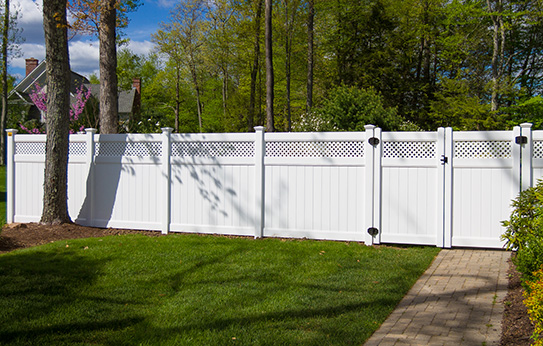Quality Craftsmenship Ensuring Peace of Mind and Reliable Security | Call Us Today! 860-628-4162 |
OnlineFence Blog
Before Installing a Fence, Consider Local Codes, Laws and Property Lines.May 19 2022 | By: Mike Dominique | Posted in: Privacy
Building Permits and Height Restrictions Many local municipalities require building permits for fence installation. The homeowner is responsible for obtaining any required permits. In addition, local municipalities or homeowners associations may restrict fence style, height or location. For example, back yard privacy fences may be permitted as high as 6’ while front yard fences may by limited to 4’ high. Knowing the local codes may save the expense of paying a fine or moving/replacing a fence. Neighbors and Fencing Disputes Property line location is often the source of friction between neighbors. Knowing where your property lines ends and handling property disputes thoughtfully can make the difference between enjoying your property and dreading to venture into your own back yard. To avoid an expensive mistake, carefully consider fence placement near property lines. Having a fence placed over the property line can result in the fence being relocated but installing the fence too far from the line can also be expensive. For example, a homeowner decided to fence in his back yard to contain his dog. He left a gap of two feet between the new fence and his property line to avoid encroaching on the property next door. Eventually his next-door neighbor installed an identical fence right on the property line, which resulted in a narrow strip of grass between the two fences that could not be easily mowed or trimmed. The only option for the first homeowner was to move his fence two feet up to the property line. This created the odd looking situation where two identical fences were touching each other back to back. Surely, it would just be easier to discuss the fence plans prior to installation. Property or neighbor disputes can often lead to the construction of, what is called, ‘the spite fence’. A spite fence is a fence that is installed for no purpose, other than to annoy or in some way harm a neighbor. One homeowner recently inquired about installing the ugliest fence possible just so his neighbor would be forced to look at it. Remember that a spite fence could not only make a neighbor dispute worse, but it may also be illegal. Many areas have state or local laws against spite fences. And, in areas where these laws do not exist, legal action can still be taken under the common law practice of private nuisance. Remember, good fences make good neighbors. Add your comment (for display after moderator approval) |
 Many questions must be answered before you install a fence on your property. Some questions are more obvious. “Where will the fence be installed?” “How will the fence look in front of my house?” Some questions are not so obvious but usually more important. “Do I need a building permit?” “Are there local codes limiting the height of the fence?” “Where is my property line and how close to the line should the fence be installed?”
Many questions must be answered before you install a fence on your property. Some questions are more obvious. “Where will the fence be installed?” “How will the fence look in front of my house?” Some questions are not so obvious but usually more important. “Do I need a building permit?” “Are there local codes limiting the height of the fence?” “Where is my property line and how close to the line should the fence be installed?”